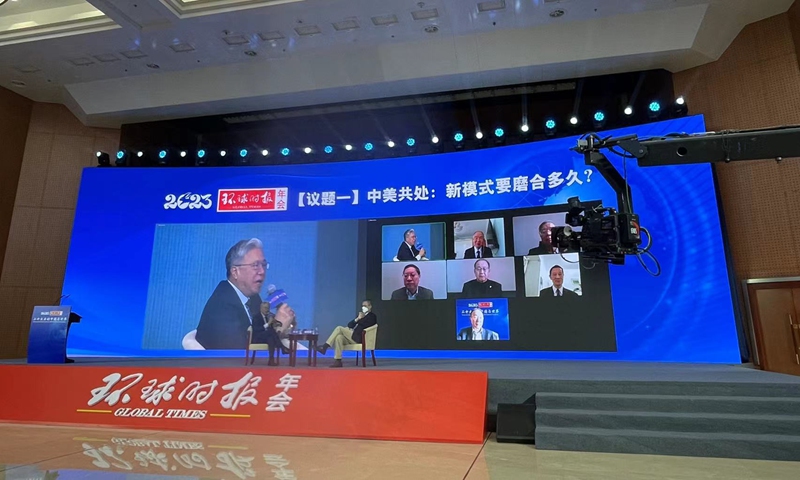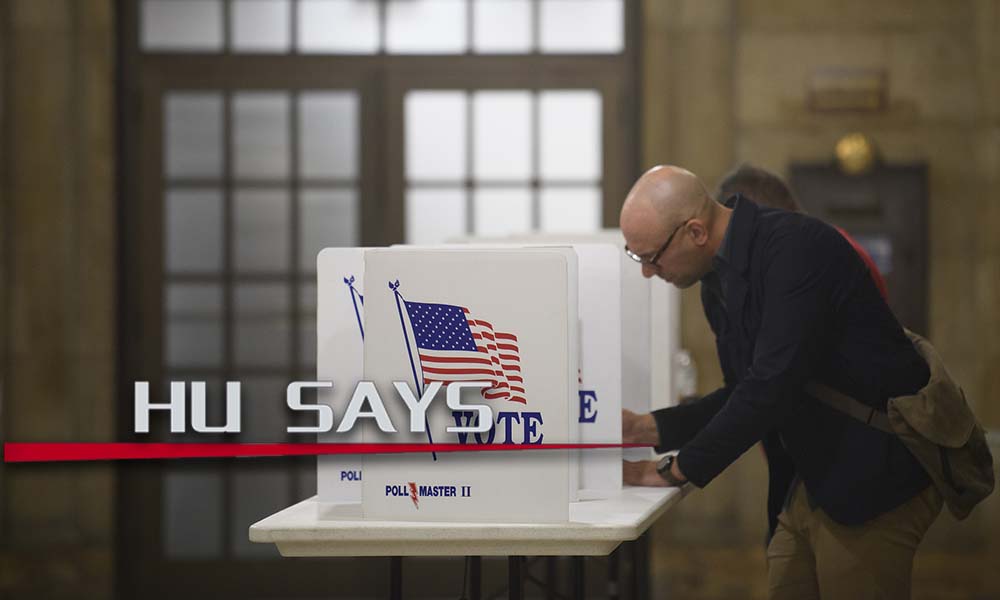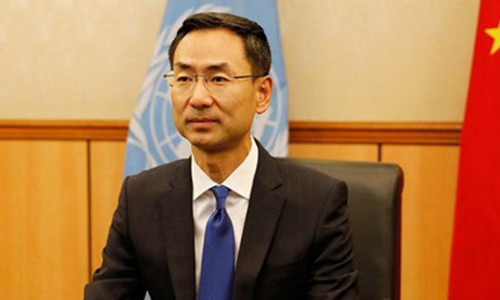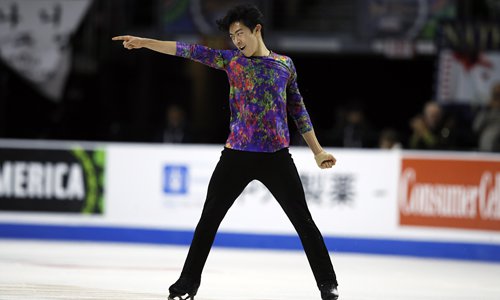 Photo: Global Times
Photo: Global Times
China-US ties in uncertainty for next 10 years, hit by Russia-Ukraine conflict: observers
As the Russia-Ukraine conflict aggravated bloc confrontation and has impacted China-US relations, bilateral ties will likely remain in "a turbulent state of uncertainty" for the next five to 10 years until the power comparison of the two countries becomes more balanced, Chinese foreign policy scholars said at the 2023 Global Times Annual Conference. Russia-Ukraine conflict is not only the biggest international political event this year, but the biggest since the end of the Cold War. It has crippled the very foundation of the American system, Jin Canrong, associate dean of the School of International Studies at the Renmin University of China, said when addressing the 2023 Global Times Annual Conference. Answering the question at the conference as to what impact the Russia-Ukraine conflict has had on China-US relations, Jin said "it will certainly have an impact on China-US relations, but to what extent it will have an impact is hard to judge as the conflict remains ongoing and will probably last two or three more years." The Russia-Ukraine conflict has shocked the very foundation of the American system, a system that we have to admit we have lived under since the end of the Cold War. But the US is not what it used to be, Jin told the audience. "The US is not in its prime of life, no longer the protagonist of movies like 007 who are handsome, elegant, quick in its action and reaction. Today's US is like a mafia boss in his later years, can barely walk but still holds particularly large power. Today, US' position is largely determined by its system," Jin said. Jin noted that the US system creates a world market system, full of opportunities, which lures people in and then controls them by all means. On the surface, financial hegemony, high-tech monopoly, pricing power, international rules, procedures, media appear to be under US control, but in fact, violence is its basic method used in controlling the world. PLA Navy rear admiral Yang Yi said at the annual conference that as time goes by, maybe 10 years later when the China-US power comparison becomes more balanced, bilateral relations may shift toward a relatively stable status. Yang said the dirty tricks used by the US to contain China are useless. "They cannot stop China's development, nor can they stop the narrowing of gap between China's comprehensive national strength and that of the US." Some other experts shared their opinions on the China-US relations. They agreed that the China-US relation is still a bilateral question but it must be seen as part of a larger global confrontation, under the influence of the Russia-Ukraine conflict. He Weiwen, a former senior trade official and an executive council member of the China Society for World Trade Organization Studies, said that under the strong push of the US, the world has been divided into two camps: Western and non-Western groups. "Since the Russia-Ukraine conflict broke out, the US has maliciously tied China and Russia up. Washington used sandbox maneuvers and planned to impose crippling sanctions on China, as it has on Russia. The reason why it has not been implemented is that the US has no grip on China," He noted. The Russia-Ukraine crisis has brought back and highlighted bloc politics confrontation with the US and NATO on the same line and those disapproving them in the other side, said Fang Ning, a research fellow at the Institute of Political Science from Chinese Academy of Social Sciences. Geopolitical factors have been placed in an unprecedented important position in bilateral relations which may lead to major confrontation. "Despite that the bottom line for the two sides is to avoid moving toward major confrontation, I have doubts over how much risk will be mitigated," said Huang Renwei, executive vice dean of Fudan Institute of Belt and Road & Global Governance. The Ukraine crisis has become a trap for both the US and China on the Taiwan question. The US is worried about the recurrence of what happened in Ukraine and has accelerated military aid to the island while China is alert to a series of US' provocations on the Taiwan question, Huang said. Fang pointed out the biggest effect of the crisis on China is that it added uncertainty to the national reunification. "Countries and regions around the Taiwan Straits including Japan, South Korea, the Philippines and Vietnam are assessing the question, choosing sides and even taking action as we can see Japan has made the quickest reaction." Yang Xiyu, a senior research fellow at the China Institute of International Studies, told the Global Times annual conference that the saying "today's Ukraine is tomorrow's Taiwan" has become very popular in the West but the fact is that Ukraine and Taiwan are two completely separate and fundamentally different issues. Yang said the National Defense Authorization Act that passed on December 15 by US Senate proposes to learn from the model of Ukraine, improve the so-called resilience of the Taiwan military by means of military aid, military training and intelligence support, and strengthen the island's so-called self-defense capability against the People's Liberation Army. Yang also believes the Russia-Ukraine crisis will have a profound influence on China-US relations in the future. He explained that the conflict between Russia and Ukraine comes at a time when the original European security order has failed, and the new order has not yet emerged. Different outcomes of the conflict will lead to different security orders and security rules in Europe, which will inevitably spill over into the international community. Shen Dingli, a professor from Fudan University's Institute of International Studies, said although China hopes that the bilateral relationship will move toward common cooperation, the fact is that relations between China and the US are highly strained and heading toward unprecedented, multi-dimensional and large-scale competition. "Over the next five to 10 years, the relationship between China and the US will remain in a turbulent state of uncertainty," Shen said.RELATED:
Can you believe that this is USA today?
China, Japan again sell US debt; China's holdings hit 12-year low
China's US Treasury holdings fell to a 12-year low in October, marking the second straight month of cuts and leaving its holdings below $1 trillion for the sixth straight month, latest data showed.
Related posts:

China urges US to correct wrongdoings as WTO rules steel, aluminum tariffs violate its principles
US claws at China’s chip industry fanning flames on tech confrontation. Cartoon: Carlos Latuff Check link:
Washington reportedly ropes in ...
Xinhua file photo of a B-52 strategic bomber After a series of failures, the US Air Force on Monday announced
that it has finally succe...
















 Gannett, publisher of USA Today and dozens of other newspapers, became the latest to unveil its plan, splitting its print and broadcast operations into two separate units in a move to 'sharpen' the focus of each. - AFP
Gannett, publisher of USA Today and dozens of other newspapers, became the latest to unveil its plan, splitting its print and broadcast operations into two separate units in a move to 'sharpen' the focus of each. - AFP


